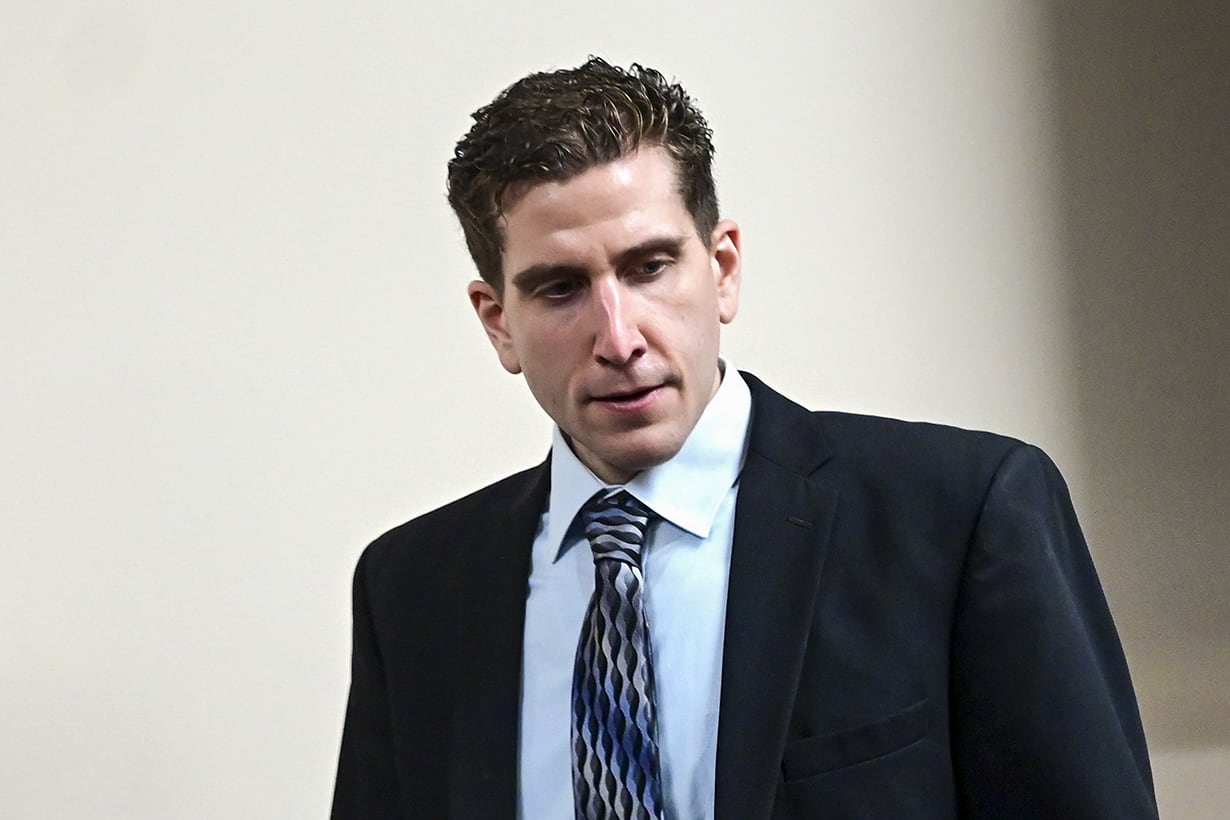
Bryan Kohberger’s attorney says there is “no connection” between him and the four Idaho students he is accused of fatally stabbing and that other men’s DNA was found at the scene of the crime, according to a new court filing.
In the June 22 filing, Jay Weston Logsdon, the attorney for Kohberger, 28, critiques authorities’ use of investigative genetic genealogy to apparently zero in on Kohberger as a suspect in the Nov. 13 slayings of Ethan Chapin, 20, of Conway, Washington; Madison Mogen, 21, of Coeur d’Alene, Idaho; Xana Kernodle, 20, of Avondale, Arizona; and Kaylee Goncalves, 21, of Rathdrum, Idaho.
The attorney characterizes investigative genetic genealogy as a “bizarrely complex DNA tree experiment” and writes that “there is no explanation for the total lack of DNA evidence from the victims in Mr. Kohberger’s apartment, office, home or vehicle.”
“Rather than seeing it as some sort of complex tree building that led to him, it appears far more like a lineup where the government was already aware of who they wanted to target,” Logsdon said.
Logsdon also said that another man’s DNA was found on a glove outside the house less than a week after the murders, and that the DNA of two additional men were found in the house by Dec. 17. He said the defense team is unaware of what, if any, testing was conducted on those samples.
The attorney also alleged that police investigated “various possible suspects,” many of whom provided DNA — including at least one who allegedly “had his DNA surreptitiously taken from a discarded cigarette” and others who “had their phones taken and downloaded,” the filing said. And he wrote that investigators have yet to explain how they came to identify the suspect’s car as a white Hyundai Elantra. (Investigators have said they tracked Kohberger’s car, a white Hyundai Elantra, and cellphone use in the area of the King Road house in Moscow where the students lived.)
“It remains unclear what the police first relied on in focusing their investigation on Mr. Kohberger,” Logsdon said in the filing. “No matter what came first, the car or the genetic genealogy, the investigation has provided precious little.”
Kohberger was arrested on Dec. 30 in Monroe County in northeastern Pennsylvania. A grand jury in Latah County indicted him on murder charges on May 16, and he was arraigned on May 22, when he stood silent as a judge entered not guilty pleas on all murder charges. His trial is tentatively set to begin on Oct. 2.
Kohberger remains held in Latah County Jail without bail, online records show.
Filing follows prosecutors’ explanation of use of investigative genetic genealogy
The defense’s filing came less than a week after a filing from the Latah County Prosecutor’s Office that provided new details about how investigators used DNA and genetic genealogy, which has been used to identify several victims and suspects in recent years, to identify Kohberger as the prime suspect in the case.
Some information about the use of DNA to identify Kohberger was already known prior to the June 16 filing: Law enforcement sources previously told NBC News that DNA played a role in helping investigators home in on Kohberger, and a probable cause affidavit unsealed in January stated that male DNA was “left on the button snap of the knife sheath” and that DNA retrieved from the trash of Kohberger’s family home in Pennsylvania on Dec. 27 showed there was a high probability it was from the biological father of the person who left the DNA on the sheath at the crime scene.
In that June 16 filing, prosecutors said investigators turned to genetic genealogy after DNA found on the knife sheath failed to turn up any matches on the FBI database CODIS, which tracks DNA profiles of people who have been arrested or convicted of crimes. Investigators commissioned a private lab to build a DNA profile that could be used to search for relatives and then uploaded the DNA profile “to one or more publicly available genetic genealogy services to identify possible family members of the suspect based on shared genetic data,” the filing said.
Investigators then built a family tree of hundreds of relatives “using the same tools and methods used by members of the public who wish to learn more about their ancestors,” the earlier filing said, citing social media, birth and death certificates and user-submitted information as examples. FBI investigators then sent local law enforcement a tip to investigate Kohberger.
After law enforcement obtained the DNA from Kohberger’s father and, later, a cheek swab from Kohberger, they found the “statistical match” showing the DNA found on the knife sheath was at least 5.37 octillion times more likely to be Kohberger’s than an unrelated member of the public, the document states.
Experts have cautioned that DNA evidence isn’t foolproof and shouldn’t be the sole basis for an arrest or prosecution, and that law enforcement’s growing use of genetic genealogy allows them to gain access to the DNA of non-suspects as well.
‘The State is hiding its entire case’
Through the June 16 filing — a motion for protective order — prosecutors sought to keep more detailed information under wraps, including raw data and lab notes about the DNA profile and information about Kohberger’s potential relatives used to build the family tree.
Prosecutors said in that filing that they were willing to disclose other information, including documentation proving that the DNA test was performed and information related to the analysis performed on DNA culled from the knife sheath, from Kohberger’s parents’ trash and from a buccal swab performed on him, the filing states.
The more recent filing from Kohberger’s attorney — an objection to the state’s motion — argues that prosecutors must reveal how Kohberger’s DNA profile was created and “how many other people the FBI chose to ignore during its investigation.”
“In essence, through the lack of disclosure and their motion to protect the genetic genealogy investigation, the State is hiding its entire case,” Logsdon alleged.
Source: | This article originally belongs to Nbcnews.com










